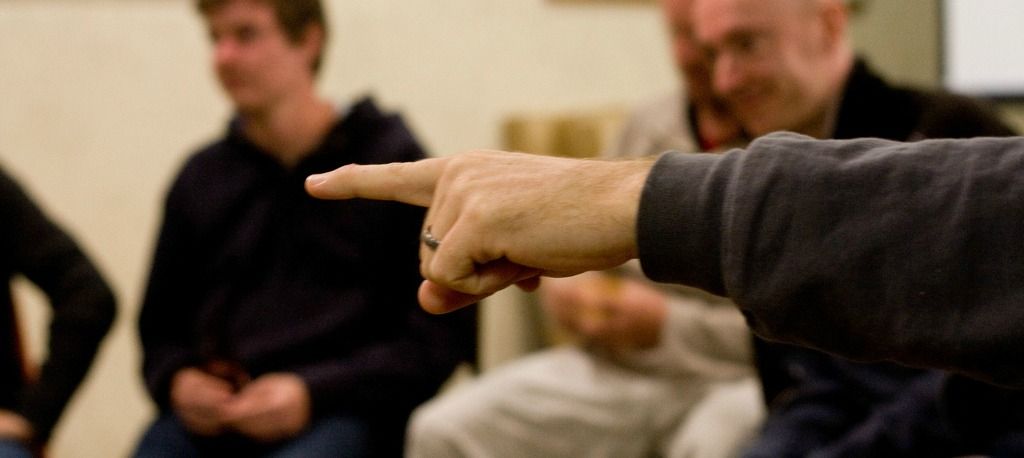Reckon you're smart enough to get into Oxford? Put yourself to the test.
It's one of the most prestigious universities in the world - and one of the hardest to get into - so it's safe to say that getting a place at Oxford University means you've got a fairly sizeable brain knocking around your around.
The entrance process for Oxford has a reputation for being extremely difficult, with hopeful students supposedly being asked impossible questions like "Tell me why this chair doesn't exist" and "Explain how 2 + 2 could equal 5". In an effort to encourage applicants from a wider background, the university has released a set of five sample questions (and answers) to try to demystify the whole process.
We've got the questions below, but a word of warning before you dive in: these aren't yes or no questions, or even questions with straightforward answers. They're designed to show your ability to think on the spot, make convincing arguments and demonstrate an understanding of the subject you want to study.
The answers Oxford provided are really,
really long, so we've cut them down and highlighted the essentials, but if you want to read them in full then you can do so here.
What makes a novel or play 'political'?
 Subject:
Subject: Modern Languages (French)
Interviewer: Helen Swift, St Hilda’s College
"In posing the overall question 'what makes this political?' we'd want the candidate to start thinking about what one means in applying the label:
what aspects of a work does it evoke? Is it a judgment about content or style?
"Could it be seen in and of itself a value judgment? How useful is it as a label?
What if we said that all art is, in fact, political? What about cases where an author denies that their work is political, but critics assert that it is – is it purely a question of subjective interpretation? And so on.
"The interviewers would provide prompt questions to help guide the discussion. A strong candidate would show ready willingness and very good ability to engage and develop their ideas in conversation.
"It would be perfectly fine for someone to change their mind in the course of the discussion or come up with a thought that contradicted something they’d said before – we want people to think flexibly and be willing to consider different perspectives."
About 1 in 4 deaths in the UK is due to some form of cancer, yet in the Philippines the figure is only around 1 in 10. What factors might underlie this difference?
 Subject:
Subject: Medicine
Interviewer: Chris Norbury, The Queen's College
"This is a typically open question, with no single 'correct' answer, which aims to stimulate the sort of discussion that might be encountered in a tutorial teaching session. The discussion could take any one of a number of directions, according to the candidate's interests. Some candidates will ask useful clarifying questions, such as
'Where do these data come from, and how reliable are they?', or '
What is the average life expectancy in these parts of the world?'.
"Some candidates will seize on the idea that various aspects of the typical lifestyle in the UK are inherently unhealthy, which can make for an interesting discussion in itself. Others, especially if they appreciate that
life expectancy in the Philippines is substantially lower than in the UK, will realise that
other causes of death are more common in the developing world, and that this is the major factor that gives rise to the difference alluded to in the question."
What exactly do you think is involved in blaming someone? 
Subject: PPE (Philosophy, Politics and Economics)
Interviewer: Ian Phillips, St Anne's College
"With a question like this we’re not looking for a right answer but instead whether the candidate can be creative in coming up with examples and suggestions, and can think critically and carefully through their implications. So, for example, many candidates start out by suggesting that for A to blame B, A would have to think that B had done something wrong. Many might also make the point that B needn't actually have done anything wrong.
"We can use this opening suggestion to consider a simple theory of blame:
blame is just thinking that someone has done something wrong. When this is put to candidates, most recognize that
blame seems to involve more than this. This shows their capacity to evaluate a proposal, and we'll typically ask them to illustrate their verdict with a counter-example: a case where someone thinks someone has done something wrong but doesn’t blame them.
"Candidates will then be encouraged to offer and test out more sophisticated proposals about the nature of blame. Some might suggest that
blame involves a more complex judgement than just that someone has done something wrong. Others instead might argue that real
blame requires feelings of some kind on the part of the blamer: anger, or resentment, for example. And again we can put these proposals to the test by looking for counter-examples."
Imagine a ladder leaning against a vertical wall with its feet on the ground.
The middle rung of the ladder has been painted a different colour on the side, so that we can see it when we look at the ladder from the side on.
What shape does that middle rung trace out as the ladder falls to the floor?

Photo: Pixabay
Subject: Maths
Interviewer: Rebecca Cotton-Barratt, Christ Church
"This question tests whether you can do what mathematicians do, which is to
abstract away all the unimportant information and use mathematics to represent what’s going on. I'd initially ask the candidate what shape they think will be formed, and then ask them how they can test this hypothesis.
"They might initially try sketching the ladder at different stages – this is fine, but ultimately what we want is something that we can generalise and that is accurate (you can't be sure that your drawing is that accurate, particularly when you're making a sketch on a whiteboard and don't have a ruler). So eventually they will fall back on maths, and try to model the situation using equations.
"If they get stuck we would ask them what shape the ladder makes with the wall and floor, and they'll eventually spot that at each stage
the ladder is forming a right-angled triangle. Some might then immediately leap to Pythagoras' Theorem and use that to find the answer (which is that
it forms a quarter circle centred on the point where the floor meets the wall).
"This is a fun question because
the answer is typically the opposite of what they expect because they think about the shape the ladder makes when it falls (which is a series of tangents to a curve centred away from the wall and the floor). A nice extension is what happens when we look at a point 1/3 or 2/3 up the ladder."
A large study appears to show that older siblings consistently score higher than younger siblings on IQ tests. Why would this be?

Photo: Pixabay
Subject: Experimental Psychology
Interviewer: Kate Watkins, St Anne's College
"This is a question that really asks students to think about lots of different aspects of psychology, and we guide students when discussing it to think about both scientific factors such as maternal age (mothers are older when younger siblings are born – could that play a role?) and observational analysis about
how birth order might affect behaviour and therefore performance on IQ tests.
"It's a great question because students begin from the point they are most comfortable with, and we gradually add more information to see how they respond: for example, noting that
the pattern holds true even taking into account things like maternal age. This can lead them to think about what the dynamics of being an older sibling might be that produce such an effect – they might suggest that
having more undivided parental attention in the years before a sibling comes along makes a difference, for example.
"Then we introduce the further proviso that the effect isn't observable in only children – there is something particular to being an older sibling that produces it. Eventually most students arrive at the conclusion that
being an older sibling and having to teach a younger sibling certain skills and types of knowledge benefits their own cognitive skills (learning things twice, in effect). But there isn't really a 'right' answer and we are always interested to hear new explanations that we haven’t heard before."
Feature image: Milford / Diliff
This article first featured on JOE.co.uk







